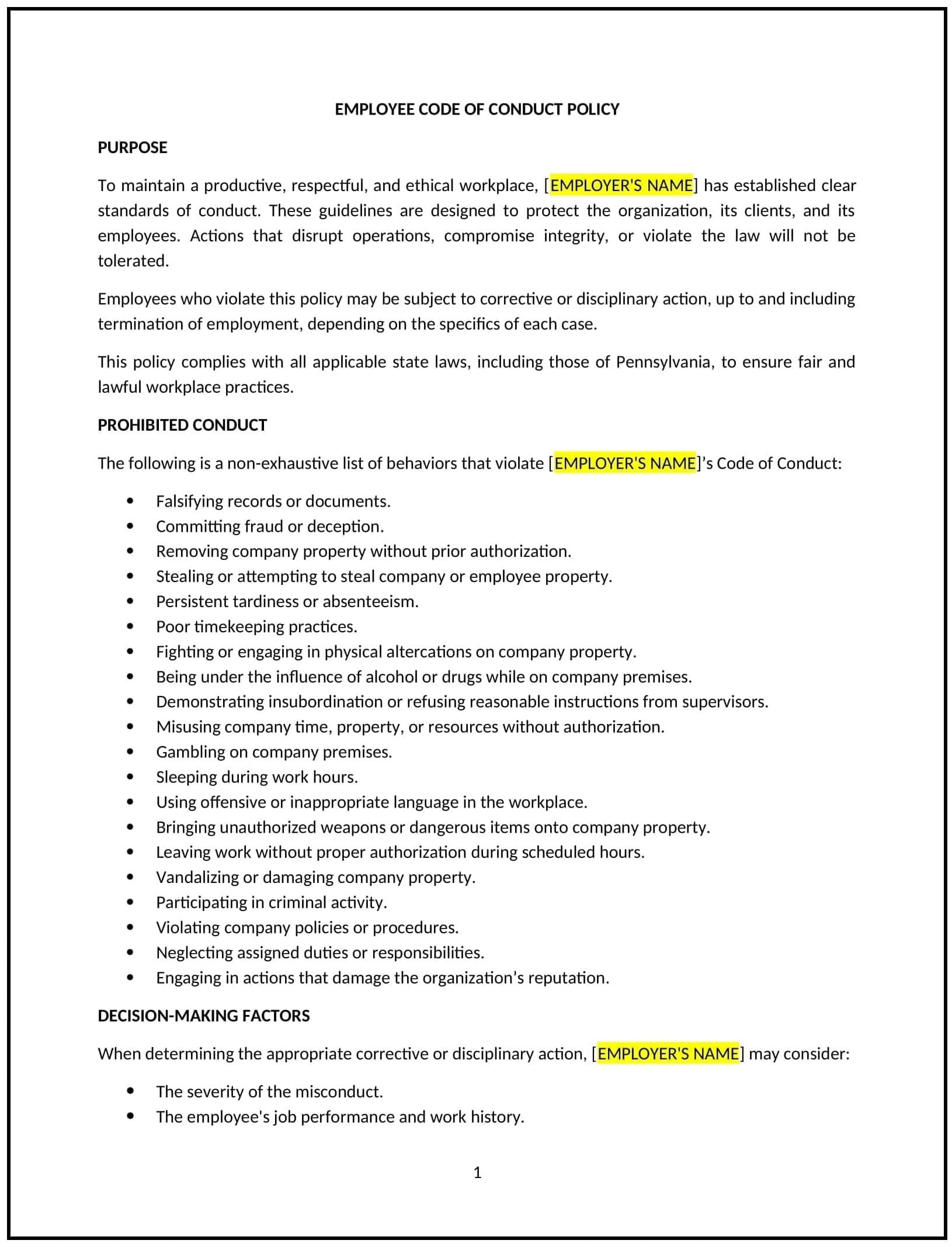Standards of conduct policy (Pennsylvania): Free template
Got contracts to review? While you're here for policies, let Cobrief make contract review effortless—start your free review now.

Customize this template for free
Standards of conduct policy (Pennsylvania)
This standards of conduct policy is designed to help businesses in Pennsylvania establish clear expectations for workplace behavior, professionalism, and ethics. By outlining acceptable and unacceptable conduct, this template promotes a respectful and productive work environment while supporting compliance with Pennsylvania labor laws.
By using this template, businesses can reduce workplace conflicts, maintain professionalism, and foster a culture of accountability.
How to use this standards of conduct policy (Pennsylvania)
- Define workplace behavior: Clearly outline expectations for professionalism, communication, and interactions among employees.
- Address prohibited conduct: Specify unacceptable behaviors, such as harassment, discrimination, theft, or violations of company policies.
- Include reporting procedures: Provide guidelines for reporting violations of the policy, including designated contacts and confidentiality protections.
- Establish consequences: Detail potential disciplinary actions for breaches of conduct, such as warnings, suspension, or termination.
- Reflect Pennsylvania-specific considerations: Tailor the policy to address state regulations or industry norms, such as specific ethical standards or labor practices.
Benefits of using a standards of conduct policy (Pennsylvania)
A well-structured standards of conduct policy supports professionalism and workplace harmony. Here's how it helps:
- Promotes accountability: Establishes clear expectations for employee behavior and the consequences for misconduct.
- Reduces conflicts: Provides guidelines to address and prevent workplace disputes or unethical behavior.
- Enhances professionalism: Encourages a respectful and productive workplace culture.
- Supports compliance: Aligns with Pennsylvania labor laws and regulations to minimize legal risks.
- Reflects local needs: Considers Pennsylvania-specific workforce dynamics and industry standards for ethical conduct.
Tips for using a standards of conduct policy (Pennsylvania)
- Communicate the policy: Share the policy with employees during onboarding and ensure it is easily accessible for reference.
- Train managers: Equip supervisors with tools to enforce the policy consistently and address violations appropriately.
- Document incidents: Maintain thorough records of reported violations, investigations, and disciplinary actions to ensure accountability.
- Encourage feedback: Foster open communication to address employee concerns about the policy or workplace behavior.
- Review periodically: Update the policy to reflect changes in Pennsylvania labor laws, workplace practices, or organizational goals.